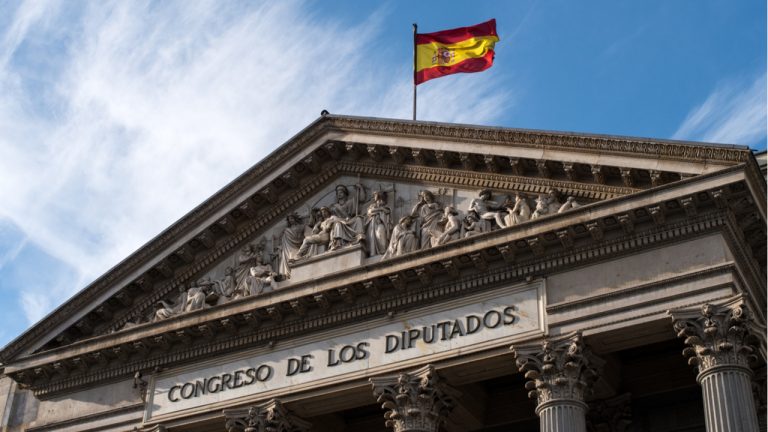A group of Spanish deputies filed a proposal that seeks to accelerate the implementation of a digital euro. The proposal, presented on June 8, asks for the creation of a group to study the implementation of a digital currency in the Eurozone. This study group, if created, would be aided by the Bank of Spain. However, the issuance of a digital euro is still under study by the European Central Bank (ECB).
Spanish Deputies File Proposal to Accelerate the Digital Euro
A group of Spanish deputies from the Socialist Party introduced a no law proposal to accelerate the issuance of a digital euro. The proposal, filed on June 8, asks the central government to establish a study group to examine the benefits of the implementation of such currency. The Bank of Spain would aid this central bank digital currency (CBDC) study group in this task.
The proposal mentions four motives to advance this research: first, the advances in digitalization techniques that make these new payment forms possible. Second, the establishment of a CBDC would decelerate the use of cryptocurrencies and other payment methods separated from the banking system. These methods are difficult to control and scrutinize.
Another motive mentioned has to do with financial inclusion. The proposal states a central bank digital currency would improve financial inclusion, with the penetration of smartphones aiding the population to acquire financial products directly. The fourth motive mentions the impending disappearance of cash for health and public costs reasons.
However, experts argue that Spain might not have the legal competence to issue a digital euro just on Spanish lands. This is what Alfredo Muñoz, professor of Commercial Law at the University of Madrid, declared. According to him:
Spain lacks the competence to decide on the issuance of euros, digital or not. The EU has “exclusive competence” in the monetary policy of the member states.
The Digital Euro Still Under Study
The proposal presented by these Spanish deputies seems contradictory, considering a digital euro is still under study. The ECB has declared this type of electronic currency is still in the experimentation phases. The official digital euro website clarifies the institution will decide on this subject towards the middle of this year.
However, other voices have advanced more specific information on the subject. For example, Christine Lagarde, President of the European Central Bank, stated the digital Euro could arrive in five years. She stressed they had to do it right because the task what not trivial.
Other countries like the Bahamas and China have already been testing and phasing in their own CBDCs. But Spain, as part of the EU, will have to wait for the decision of the European Central Bank.
What do you think about the no law proposal presented by Spanish deputies? Tell us in the comments section below.




















